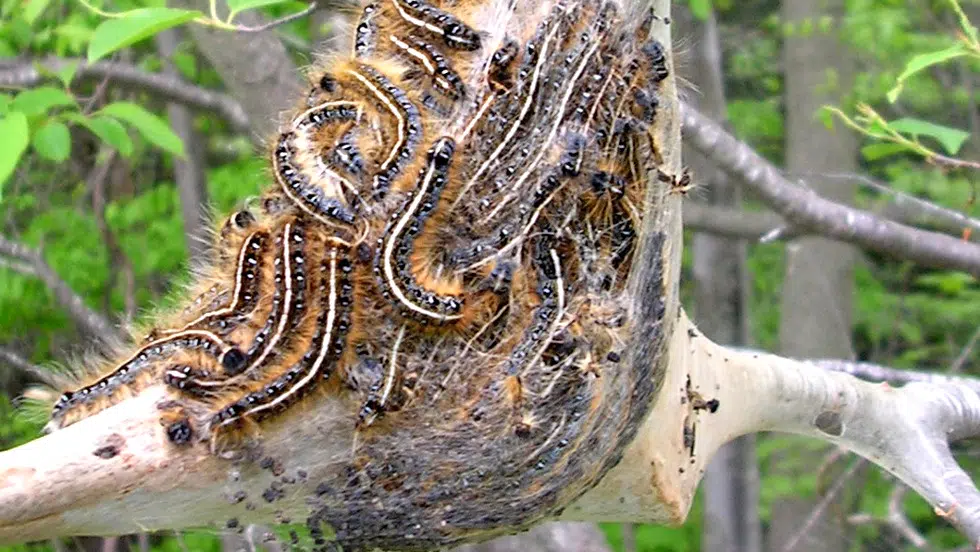
Tent caterpillars sweeping through Boreal forest
A tent caterpillar outbreak just north of Prince Albert could be ground zero for a province-wide invasion.
Several pockets of hardwood forest near Christopher Lake, Emma Lake, and Montreal Lake have become overrun with the insects during the last week.
“This is sort of an epicentre of areas that have been defoliated so far that we’re aware of at this point in time,” said Rory McIntosh, provincial forest etymologist and pathologist for the ministry of environment.
“Some of the reports I’ve heard from the folks up at Emma Lake say that last Thursday they saw maybe two or three caterpillars but by Friday or Saturday there were thousands, tens of thousands of them everywhere,” he said.


